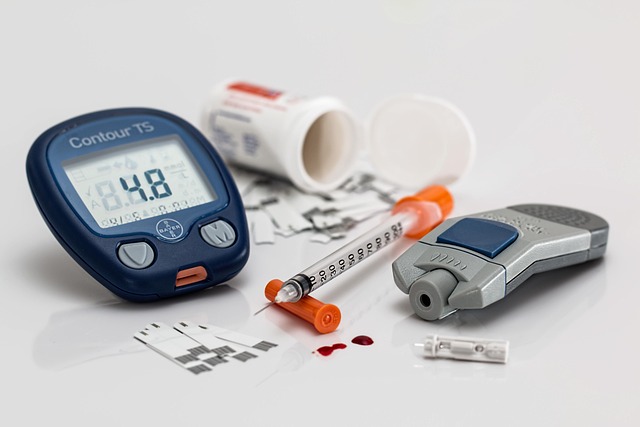Recognizing Amyloidosis: The Silent Condition That Can Mimic Other Illnesses
Amyloidosis represents one of medicine's most challenging diagnostic puzzles, often masquerading as common conditions while silently affecting multiple organ systems. This complex disorder occurs when abnormal proteins called amyloids accumulate in tissues and organs, disrupting their normal function. Understanding the subtle warning signs and early symptoms can make the difference between timely intervention and potentially life-threatening complications.

Amyloidosis affects thousands of people worldwide, yet many cases remain undiagnosed for months or even years. This condition develops when misfolded proteins deposit in various organs, including the heart, kidneys, liver, and nervous system. The challenge lies in recognizing symptoms that often overlap with more common medical conditions, making early detection crucial for effective management.
The Hidden Warning Signs of Amyloidosis
The early symptoms of amyloidosis can be remarkably subtle and easily attributed to other causes. Unexplained weight loss, swelling in the legs and ankles, and shortness of breath during routine activities may signal cardiac involvement. Kidney-related symptoms include foamy urine and persistent swelling, while gastrointestinal symptoms might manifest as changes in bowel movements or unexplained abdominal discomfort.
Skin changes represent another important warning sign that patients and healthcare providers should not overlook. Easy bruising, particularly around the eyes, and waxy, thickened skin patches can indicate amyloid deposits affecting the skin and blood vessels. These visual cues often provide the first concrete evidence that something more serious than typical aging or minor health issues may be occurring.
Why Fatigue Shouldn’t Be Ignored
Fatigue in amyloidosis extends far beyond typical tiredness from busy schedules or poor sleep. This overwhelming exhaustion often persists despite adequate rest and can significantly impact daily functioning. The fatigue results from organ dysfunction as amyloid deposits interfere with normal cellular processes.
Cardiac amyloidosis frequently causes exercise intolerance and breathlessness during activities that were previously manageable. Patients may notice they cannot climb stairs or walk distances they once handled easily. This progressive decline in physical capacity, combined with persistent fatigue, warrants thorough medical evaluation to rule out amyloidosis and other serious conditions.
The Critical Role of Early Detection
Early diagnosis of amyloidosis significantly improves treatment outcomes and quality of life. Healthcare providers use various diagnostic tools, including blood tests to identify abnormal protein levels, imaging studies to assess organ involvement, and tissue biopsies to confirm amyloid deposits. Advanced imaging techniques like cardiac MRI and nuclear medicine scans can detect early organ changes before symptoms become severe.
Genetic testing plays an increasingly important role in diagnosis, particularly for hereditary forms of amyloidosis. Family history evaluation helps identify individuals at risk and enables proactive monitoring. Early detection allows for prompt treatment initiation, which can slow disease progression and prevent irreversible organ damage.
Treatment Options: Managing Amyloidosis Effectively
Treatment approaches for amyloidosis vary depending on the specific type and extent of organ involvement. Light chain amyloidosis, the most common form, often requires chemotherapy-like treatments to reduce abnormal protein production. These medications target the underlying plasma cells responsible for producing the problematic proteins.
Supportive care measures address specific organ complications and symptoms. Heart failure management may include medications to improve cardiac function and fluid management strategies. Kidney involvement might require dialysis in advanced cases, while nutritional support helps address gastrointestinal symptoms and weight loss.
| Treatment Type | Primary Focus | Typical Approach | Cost Estimation |
|---|---|---|---|
| Chemotherapy Protocols | Protein Reduction | Monthly Infusions | $5,000-$15,000 monthly |
| Supportive Cardiac Care | Heart Function | Daily Medications | $200-$800 monthly |
| Kidney Management | Renal Support | Dialysis/Medications | $3,000-$8,000 monthly |
| Nutritional Support | Symptom Management | Supplements/Counseling | $100-$500 monthly |
Prices, rates, or cost estimates mentioned in this article are based on the latest available information but may change over time. Independent research is advised before making financial decisions.
What You Can Do Right Now
If you experience unexplained symptoms that persist or worsen over time, seeking medical evaluation represents the most important step. Keep detailed records of symptoms, including when they occur and their severity. This information helps healthcare providers identify patterns that might suggest amyloidosis or other conditions requiring attention.
Maintaining overall health through proper nutrition, regular exercise within your capabilities, and adherence to prescribed medications supports your body’s ability to cope with any underlying conditions. Stay informed about your family medical history and share this information with healthcare providers, as genetic factors can influence amyloidosis risk.
Amyloidosis remains a complex condition requiring specialized medical care and ongoing management. While the diagnosis can feel overwhelming, advances in treatment options and supportive care continue to improve outcomes for patients. Early recognition of symptoms and prompt medical attention provide the best opportunity for effective intervention and maintaining quality of life despite this challenging condition.
This article is for informational purposes only and should not be considered medical advice. Please consult a qualified healthcare professional for personalized guidance and treatment.




